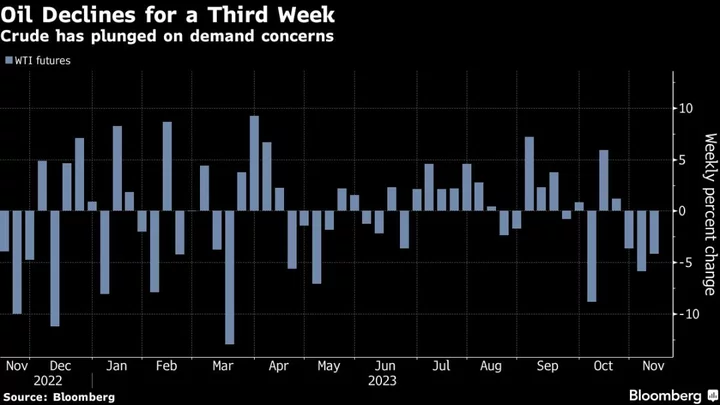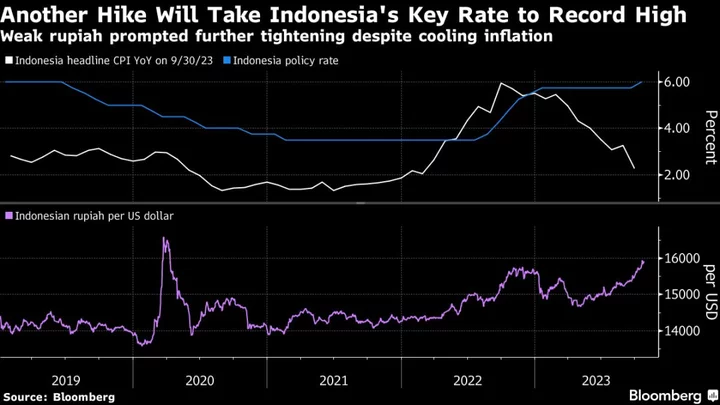Kyiv came under Russian air attack overnight in the first major strike on the Ukrainian capital in almost two months, according to General Staff of the armed forces. Russia launched at least five missiles of various types, including ballistic, and 31 Shahed attack drones, with one missile and 19 drones shot down. Air defense systems were activated across much of Ukraine, and explosions were heard in the capital.
The IMF reached a staff-level agreement on its next loan to Ukraine of about $900 million, good news at a time Kyiv sees worrying signs of a potential shortfall in financing from its Western allies. The funds are expected to arrive as soon as December following final approval from the IMF’s board. Ukraine has received about $4.5 billion from the IMF this year after it sealed a $15.6 billion loan agreement for four years, with another four disbursements for total of $5.4 billion scheduled for 2024. Ukraine’s finance minister said recently he’s concerned about getting $29 billion out of $41 billion Ukraine expects from its Western allies in aid next year, as the sources for this funds haven’t been confirmed yet.
Russian authorities said 19 cars on a train carrying fertilizer derailed early Saturday in the Ryazan region, southeast of Moscow, “as a result of impact by outsiders.” Separately, a gunpowder plant in the Russia’s Tambov region caught fire overnight with no reason given so far. Five people died in a fire at the same plant in June said to have been caused by a safety breach.
Latest Coverage
- Kyiv Residents Hear First Air Attack Explosions Since September
- Pentagon Says It’s Throttling Ukraine Aid as Funding Push Stalls
- EU’s Ukraine Talks Can’t Be Linked to Hungary Funds, Orban Says
- Ukraine Says Drones Hit Russian Ships in New Strikes on Crimea
- ICBC Hack Shows All Foreign Marks Are Equal to Russia’s LockBit
Coming Up
- Biden, Xi Jinping to meet on Wednesday in San Francisco
Markets
Oil rose on Friday along with equities, but still logged a third straight weekly drop on growing concerns over global demand and the unwinding of the Israel-Hamas war’s risk premium. WTI has shed about 13% of its price in the past three weeks — including a 4.2% drop this week.









